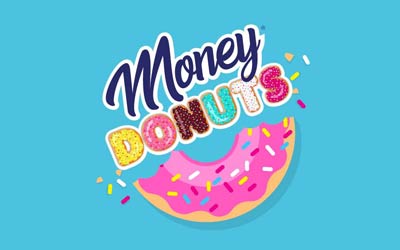
What Is A Credit Score?
A credit score is a number that tells lenders and other organizations how likely you are to repay debt.
There are three main credit reporting agencies: Equifax, Experian, and TransUnion. These companies each create a credit report and calculate a credit score based on a person’s accounts, payment history, and other factors explained in detail below. Because each agency uses its own method for creating a credit score, your number score may vary depending on which agency provides it. The FICO® score is one of the most popular scales, with values ranging from a low of 300 to a high of 850. Higher numbers mean better credit and less risk for lenders.
How Is Your Credit Score Determined?
Your credit score is determined by five factors:
- Payment history makes up 35% of your score. This takes into account on-time payments, missed payments, the number of missed payments, how many days past due your payments were, and how recently payments were missed. On-time payments will help increase your credit score, while missed payments, especially recent missed payments, will negatively affect your score.
- The amount you owe on your loans and credit cards makes up 30% of your credit score. This includes the total amount you owe, the type and number of accounts you have, and the amount you currently owe compared to the total of your credit limits. Maxing out a credit card or carrying a high balance will have a negative effect on your score, while paying a smaller balance on time can raise your credit score. Newer loans with few payments can also have a temporary negative effect on your score until you’ve established a successful payment history.
- The length of your credit history makes up 15% of your score. A longer history of on-time payments increases your score in this category, while having no history can hurt your score.
- Recent credit activity makes up 10% of your score. If your recent activity doesn’t include new accounts and has many on-time payments, your score will increase over time. However, if you recently opened a lot of accounts or applied for several loans, it signals that you might be having financial problems and can result in a lower score.
- Your account types make up the remaining 10% of your score. Having different types of accounts like home loans, installment loans, and credit cards can help improve your score in this category.
What Is Affected By Your Credit Score?
Remember that your credit score is an indicator of how likely you are to repay your debts. Lenders like credit unions and banks use your credit score to determine your eligibility for loans. Your score also affects the interest rate you are offered on a loan, with the highest credit scores earning the lowest interest rates because of the reduced risk to the lender.
Besides lenders, landlords and utility companies use your score to determine if you pay your bills on time, and may penalize lower credit scores with a larger security deposit or advance account billing. Some employers even check the credit scores of job applicants, reasoning that a person who is good at managing money is likely to be an organized, detail-oriented employee.




